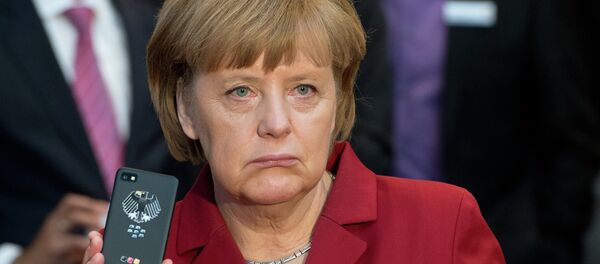WASHINGTON (Sputnik) — The National Security Agency (NSA) surveillance of former German Chancellor Gerhard Schroeder after he left office confirms electronic intelligence (elint) assets are being used to gain economic advantage, US experts told Sputnik.
The German daily newspaper Bild and the national news magazine Der Spiegel have both written that the NSA has been interested in Schroeder’s life even after he left office because of his participation in the Nord Stream gas pipeline project.
J. J. Steinberg, a senior editor of the Executive Intelligence Review, agreed with the assessment.
“Economics are national security, especially when it comes to German-Russian economic cooperation,” he told Sputnik on Monday.
The growing ties, including Nord Stream are “defined by Team Obama as a serious threat to US domination,” he said.
Nord Stream is an offshore natural gas pipeline from Vyborg in the Russian Federation to Greifswald in Germany, and Russia’s Gazprom is the main stockholder in the project.
The United States sees Gazprom as an instrument of economic control by the Russian state, US China Policy Foundation Co-Chair and former Ambassador to Saudi Arabia Charles Freeman Jr. told Sputnik.
“[The United States views] Gazprom's international relationships, for example with Ukraine, are inseparable from Russia's foreign policy,” Freeman said.
The attitude of the President Barack Obama’s administration was consistent with the reasons US policymakers expressed — and which subsequently became publicly known — for why they were determined to topple the democratically elected government of President Viktor Yanukovych in Ukraine, Steinberg explained.
“For [US Assistant Secretary of State for European and Eurasian Affairs] Victoria Nuland, Ukraine's rejection of the European Union Eastern Partnership was cause for regime change,” Steinberg stated.
Steinberg added that Schroeder’s personal friendship with Russian President Vladimir Putin had also outraged US policymakers, prompting them to watch him closely and try to embarrass him.
“[Schroeder] is hated for his personal friendship with Putin and his harsh criticism of Obama's new Cold War foolishness, the analyst said.
Ivan Eland of the Independent Institute confirmed that US national intelligence assets were often used to advance business interests where these could plausibly be described as being important to national security.
“The US government routinely claims that it doesn't spy for economic reasons, yet it usually finds ‘strategic’ reasons to get the same information,” he told Sputnik.
“Energy, specifically oil and natural gas, can be declared to be strategic items, especially when it concerns the dependency of European allies on Russian energy,” Eland said.
Also, Schroeder's friendship with President Putin could be deemed of strategic interest to US policymakers, he added.





